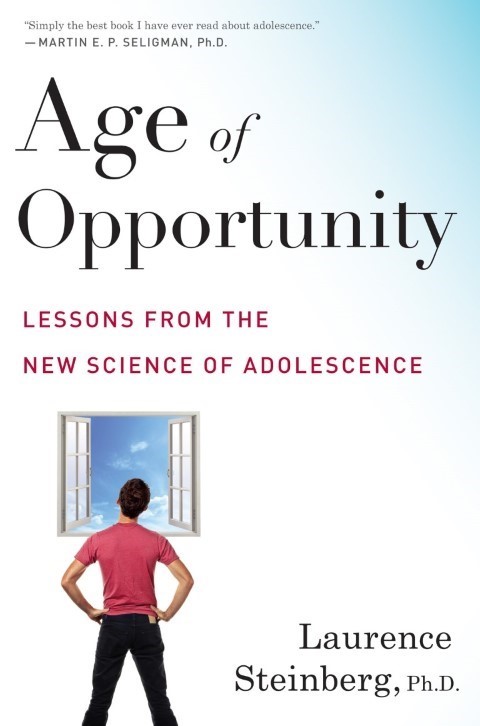Temple psychologist redefines adolescence as an 'Age of Opportunity'

Adolescence is commonly characterized as a time of confusion, recklessness and raging hormones. But it doesn't have to be that way, says Laurence Steinberg, a Temple psychology professor and leading international researcher on teen behavior and brain development.
In his new book, Age of Opportunity: Lessons From the New Science of Adolescence (Houghton Mifflin Harcourt, September 2014), Steinberg says we need to start thinking about adolescence differently.
“Adolescence is a time of unprecedented promise,” said Steinberg. “Scientists now know that it is a period of extraordinary neuroplasticity, a term that refers to how the brain can be molded by experience.”
 As an expert in the area of teen decision making and impulse control, Steinberg draws on the latest scientific findings to challenge the old stereotypes about adolescence and offer parents, educators and policymakers practical tips for improving the well-being of young people.
As an expert in the area of teen decision making and impulse control, Steinberg draws on the latest scientific findings to challenge the old stereotypes about adolescence and offer parents, educators and policymakers practical tips for improving the well-being of young people.
According to Steinberg, new research on the adolescent brain can tell us a lot about the way teens behave.
“The capacity for self-regulation in the adolescent brain is slow to develop, while other brain changes ratchet up sensitivity to reward,” he said. “This combination leads to increased impulsivity and risky behavior, and studies also show that this effect is heightened when teens are in the presence of peers.”
Armed with this knowledge, parents and communities can monitor and supervise their teens accordingly, especially when they are with their friends, said Steinberg.
He suggests that raising the minimum purchase age of cigarettes, more vigilantly enforcing the sale of alcohol to minors, expanding adolescents’ access to mental health and contraceptive services, and raising the driving age would be more effective in limiting adolescent smoking, substance abuse, pregnancy and automobile fatalities than attempts at making adolescents “wiser” through education programs.
Steinberg's research on teen behavior has played critical roles in several Supreme Court rulings that have changed the direction of juvenile justice—one ruling abolished the death penalty for juveniles, another outlawed life-without-parole sentences in non-homicide cases for those under 18.
"As a scientist, I have always been interested in the translation of research for real-life application," said Steinberg. "My research is grounded in practical considerations. And my book is grounded in science."
Age of Opportunity asks that society stop blaming teens and young adults for being vulnerable to peer pressure, or for lacking impulse control and emotional maturity.
“We have an opportunity to take stock, to educate ourselves, to pay attention, and to support and guide the adolescents in our lives,” he said. “The very malleability that puts adolescents at risk can also work in their favor, especially if well-intentioned adults are available to help them develop resources.”
Steinberg will be speaking at the Free Library of Philadelphia, Monday, Sept. 22, at 7:30 p.m. The event is free.
—August Tarrier